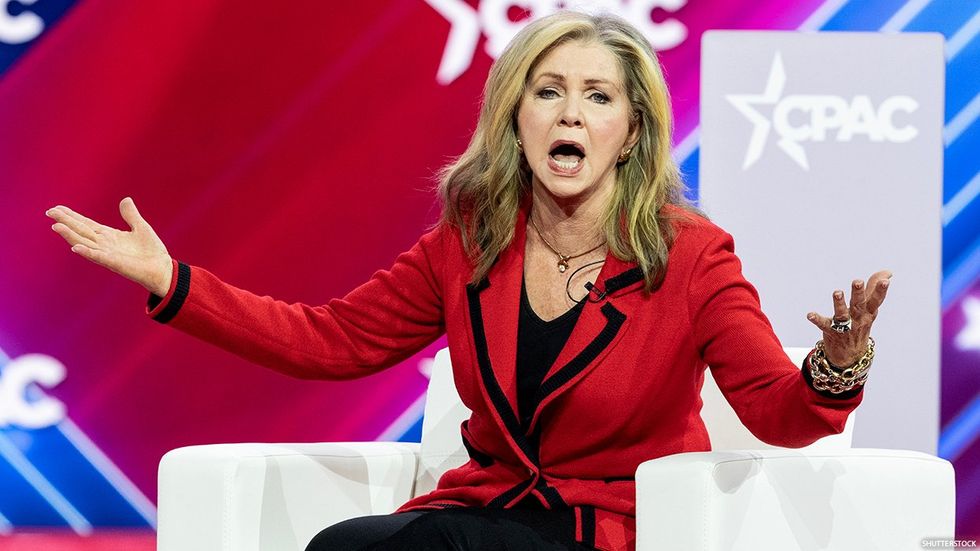Last month, Congress drew one step closer to passing a bill that will supposedly childproof the internet when the Senate Commerce Committee advanced the Kids Online Safety Act (KOSA).
KOSA, which was reintroduced after failing to gain traction in 2022, is a bipartisan bill that lawmakers say will protect children from online platforms by stopping them from targeting and recommending harmful content to minors.
The bill states that big tech companies and social media platforms like Facebook and TikTok, who use algorithmic recommendations to present users with content that is most likely to keep them engaged, “...must act in the best interest of minors using the applications or services, including by mitigating harms that may arise from that use (e.g., sexual exploitation and online bullying).”
Despite this lofty goal, the bill is supported by a number of far-right organizations and opponents warn that the overly-vague language of the bill has the potential to cause actual harm by censoring LGBTQ+ content under the guise of preventing depression, anxiety, and eating disorders in children, VICE reports.
Supporters of the bill include a who’s who of anti-LGBTQ+ organizations, including the right-wing Heritage Foundation which took to Twitter on May 20 to announce that their goal for the bill is “keeping trans content away from children.” The organization has also repeatedly claimed on its website that social media “turns kids trans.”
These types of unsubstantiated claims have been used repeatedly over the past year to justify the anti-LGBTQ+ laws that have been sweeping the nation, including laws that ban books with queer themes from libraries and schools, block transgender youth from receiving gender-affirming care, and ones that even threaten parents with criminal charges if they support their trans children.
The National Center on Sexual Exploitation (NCOSE), a far-right “anti-trafficking” group is also among the bipartisan bill’s supporters. The group has lobbied against porngraphy, sex workers, and LGBTQ+ rights since the 1960s when they used to be known as Morality in Media. NCOSE’s current CEO is Patrick Trueman used to work for the far-right Christian organizations American Family Association and The Family Research Council, both of whom have been labeled as anti-LGBTQ+ hate groups by the Southern Poverty Law Center, VICE notes.
“Many studies [have] shown the dangers that social media poses to children. Senator Blackburn's Kids Online Safety Act is a common sense solution to address those concerns and start protecting our next generation,” NCOSE wrote endorsing the bill in May on the website of Sen. Marsha Blackburn, the bill's Republican sponsor.
The far-right organizations the America First Policy Initiative and the American Principles Project both support the bill and have a history of opposing gay marriage and transgender rights.
A letter from the digital rights group Fight For The Future made it clear what is at stake if the bill were to pass. “KOSA will be weaponized against youth who are members of the LGBTQ community,” the letter, addressed to the bill’s supporters, reads. “That's a statement of fact, confirmed by supporters of the bill who have repeatedly stated that they intend to use the bill against LGBTQ content. Anti-trans bigots are telling us that they want KOSA passed to help them continue their campaign of hate, and we should believe them.”
While the bill attempts to curtail the monopolistic tech companies who use mass data collection and algorithms to push people towards harmful content and misinformation and address real societal ills like anxiety, depression, eating disorders, substance use disorders, physical violence, online bullying, and sexual exploitation, in reality many believe it will only harm LGBTQ+ youth and censor the internet.
The Electronic Freedom Foundation, a nonprofit organization that aims to defend civil liberties on the internet, warned that KOSA will put the “tools of censorship in the hands of state attorneys general, and would greatly endanger the rights, and safety, of young people online.”
The bill will also ban advertisements targeted at kids, require that minors have the strongest privacy settings by default, and mandates that companies have parental controls available on their platforms.
“Our bill provides specific tools to stop Big Tech companies from driving toxic content at kids and to hold them accountable for putting profits over safety,” said Sen. Richard Blumenthal, a Democrat from Connecticut who first introduced the bill last year. “Record levels of hopelessness and despair—a national teen mental health crisis—have been fueled by black box algorithms featuring eating disorders, bullying, suicidal thoughts, and more. Kids and parents want to take back control over their online lives. They are demanding safeguards, means to disconnect, and a duty of care for social media. Our bill has strong bipartisan momentum. And it has growing support from young people who’ve seen Big Tech’s destruction, parents who’ve lost children, mental health experts, and public interest advocates. It’s an idea whose time has come.”
The previous iteration of KOSA made it to the floor of Congress in 2022 before it was dropped after it faced criticism from LGBTQ+ rights groups and digital rights advocates, according to VICE. Since then some of the language of the bill has been changed, including an exception to the “duty of care” for news media websites and the age verification requirements has been modified for online platforms. After these changes, the Human Rights Campaign and GLAAD dropped their initial opposition.
Although some groups no longer stand against the bill, there is a coalition of several dozen LGBTQ+ and digital rights organizations who still oppose it. The ACLU, Fight For The Future, and the Electronic Frontier Foundation all say that the bill has not changed enough to stop the potential for abuse and harm. These groups have said that KOSA’s vague language allows for state attorneys general to label LGBTQ+ content as harmful and force platforms to censor.



















































































